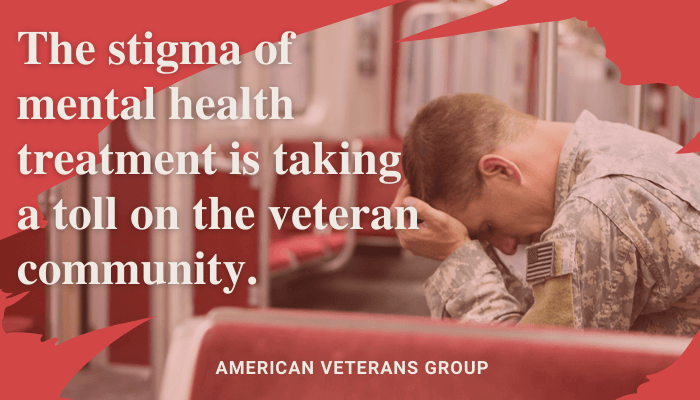
Veterans face significant barriers to mental health treatment. From a lack of access to care to the stigma surrounding mental health, veterans have several barriers to overcome before they can successfully start the journey toward recovery.
An increasing number of military service members who served during Operation Enduring Freedom (2001), Operation Iraqi Freedom (2003), and Operation New Dawn (2010), have been receiving care to address mental health conditions that developed following their military service.
More recently, the uptick in calls to veterans crisis hotlines since the American evacuation began in Kabul is alarming and evidence that there is a significant need for support. Unfortunately, many veterans do not receive timely or adequate treatment.
Barriers to Mental Health Care
According to an extensive study conducted by the Department of Veteran Affairs, mental health conditions are the third most frequently diagnosed category of conditions at the VA, for both men and women.
Despite 41 percent of Iraq and Afghanistan veterans having a mental health need, there are still a number of factors that contribute to the barriers facing them:
- Access to facilities - Many veterans in need of mental health care report that they would need to travel more than an hour to reach the needed services. Among veterans who rely on public transportation in rural locations, seeking services and returning home can take an entire day.
- Financial Distress - Lack of adequate income can result in an inability to pay for gas to reach a treatment facility, ownership of an unreliable vehicle or lack of a vehicle, or a lack of affordable or reliable public transportation prevent many from seeking the needed care.
- Confusion about services offered - Many veterans appear to be unaware of both the existence of services and their own eligibility. Understanding how various benefits and services are organized within the VA system is also a major hurdle for many veterans seeking VA care.
- Shame/Fear of losing security clearance - Two obstacles cited by the greatest number of veterans were being denied their security clearance and shame over needing to seek mental health treatment or fear of being viewed as weak by others.
Improving access to mental health services for post 9/11 veterans has become a top public health priority. Thankfully, the Department of Defense (DoD) and the VA have introduced several initiatives to increase referral of recently separated veterans to existing health services, but the barriers still exist and the support from non-VA facilities has become a necessity.
Find out how you can directly support the veteran community through your ESG practices
Toll of Mental Trauma
Every day, on average, 20 U.S. military veterans commit suicide. The Department of Defense has reported recently that they have seen an increase in suicides since the beginning of the pandemic. One study noted that the increasing rates of suicide for both veterans and active duty personnel are outpacing those of the general population.
To reduce that number and provide veterans with urgently needed options for mental trauma such as PTS (Post-Traumatic Stress), organizations like SoldierStrong are partnering with the VA to offer programs that help veterans recover from Post-Traumatic Stress. Many veterans and active service members are haunted by memories of specific disturbing events that occurred during combat. SoldierStrong’s program, BraveMind is a virtual reality therapy program that leverages cutting-edge technology to make therapy more effective and more appealing to younger generations. But veterans, especially those with depression in addition to PTS, often have a hard time willingly summoning those memories. Virtual reality therapy changes the equation.
They use exposure therapy, which involves using the imagination to recall the troubling event and talking through it with a therapist. It has been scientifically demonstrated to be a helpful treatment for PTS. Exposure therapy can gradually make difficult memories less harrowing and help veterans with PTS shut off flight-or-flight mode. This allows veterans to take part in civilian life in more meaningful ways.


